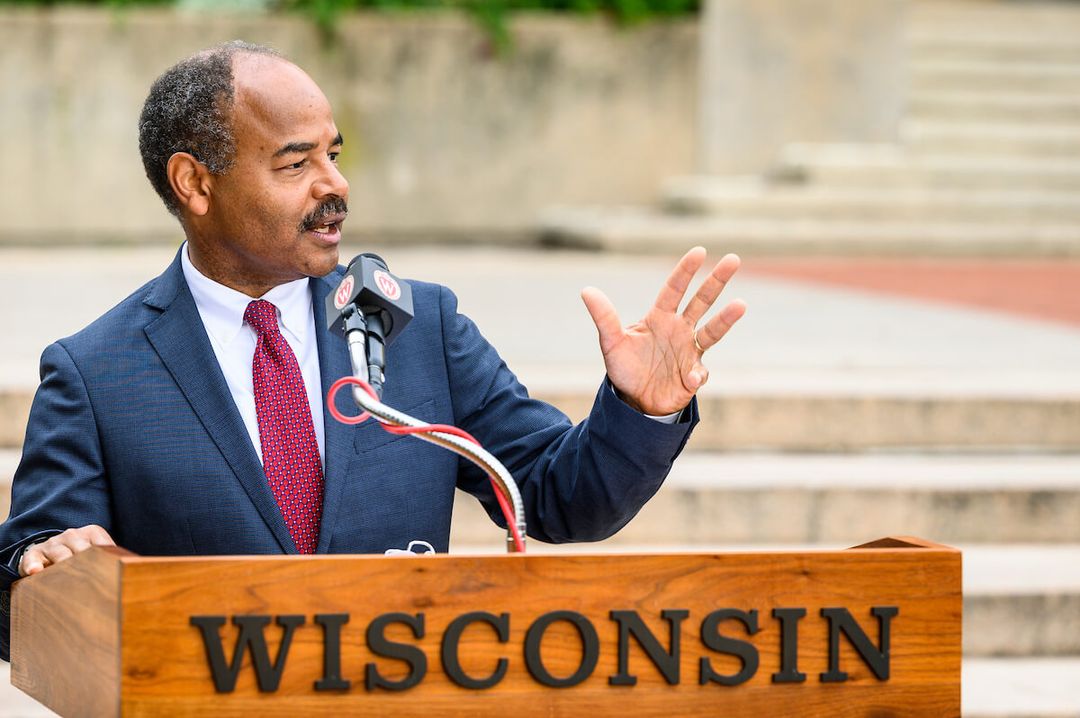Rod Copes ’88 sees change coming down the road.
“I believe we are in currently the largest transformation of the auto industry since its inception over a hundred years ago,” he says. And what’s driving that change is the battery.
Copes is the former chief operating officer at the electric vehicle manufacturer Rivian and current chair of the clean energy company Exro. He believes that the electric vehicle (EV) is changing American driving habits, and as batteries improve, EVs will become more and more common.
Copes joined The UW Now Livestream on March 12 to talk about the future of EVs, along with UW engineering professor Eric Kazyak and Greg Reichow, a venture capitalist and former vice president of manufacturing and supply chain for Tesla Motors.
Copes argued that EVs are mechanically simpler machines than gasoline powered cars and that they perform better. But people have the impression that they’re expensive and require frequent, lengthy charging. He noted that the price of EV batteries has been coming down in recent years, while vehicle range has been rising. “The cost of a battery in an electric vehicle is a third of the cost of the car,” he said. “What we’ve seen over a decade is about a 7 percent annualized reduction in the cost of the battery. So it’s getting less expensive. The range has gone up threefold in the last 10 years. The charging time has gone down dramatically.”
Kazyak spoke about EV costs, stating that while prices may be higher than for combustion engines, EVs offer hidden savings. Not only do they reduce greenhouse gas emissions, but they also contribute to better health, lowering medical expenses. “If you take into account the health impacts of things like particulate matter and carbon dioxide,” he said, “the estimates for the United States are in the hundreds of billions of dollars [saved] a year.”
He also presented data indicating that the cost of EV batteries has dropped by 90 percent in the last decade as more people purchased electric cars. “What’s really driven this transition to battery electric vehicles is an explosion in the number of models that are available,” he said.
Reichow said that the drawbacks of EVs are often overstated. For example, he said that media hyped the fear of electric vehicles catching fire, though the rate of fire in EVs is much lower than that in gasoline cars. “When things are new,” he said, “people don’t have a good way of judging risk. And there’s some pretty neat features about EVs that actually make them dramatically safer.”
WFAA CEO Mike Knetter served as moderator for the conversation, bringing forward questions from viewers who asked about battery life, the availability of public charging stations, and how clean electricity really is. But the ultimate point, Reichow said, is that though many people find EVs exotic, they will win consumers over with their convenience.
“Once you’ve owned EV for a while, you really understand that … it’s just this convenient thing of not having to stop at a gas station,” he said. “You just pull into your driveway at night and you plug in your car and you wake up the next morning with a full tank.”
The conversation about EVs generated more questions than the guest had time to answer. See how they answered questions after the program.
